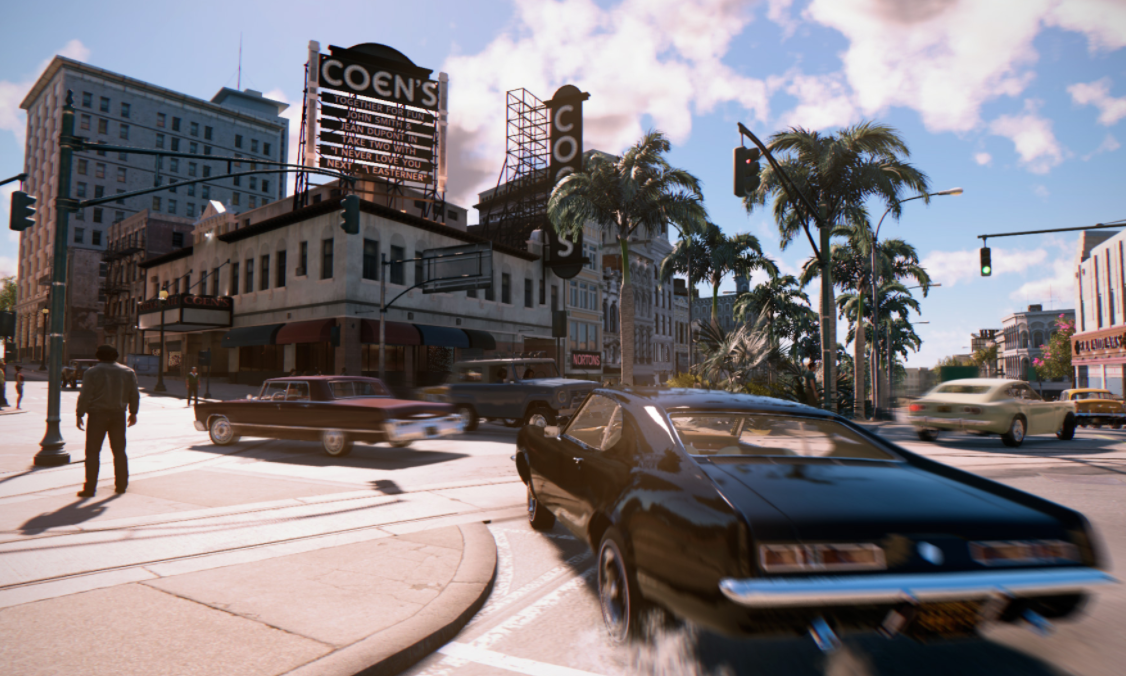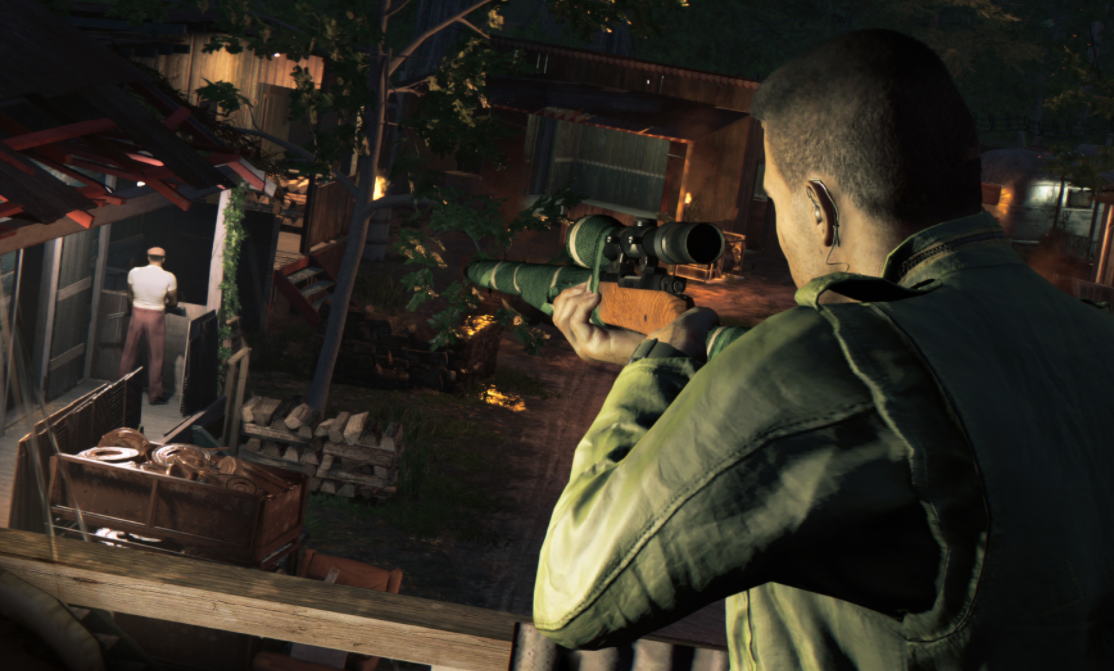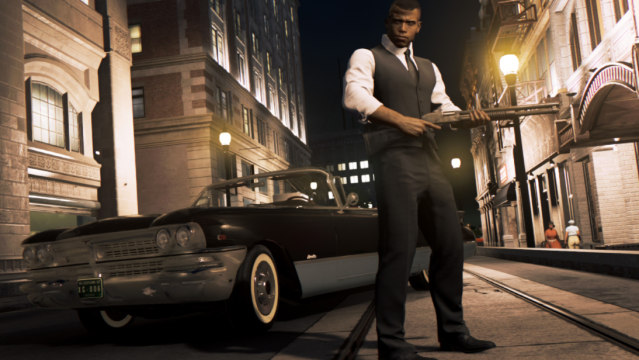Mafia III’s perspective on racial tensions in the United States is something rarely seen in games. Accordingly, some reviewers have argued that the actual gameplay of Mafia III wasn’t nearly as innovative as the narrative. While I agree that Mafia III’s narrative takes more risks than the gameplay, the two function as a whole. The open-world setting made Mafia III’s story more compelling by working against each other. Where the gameplay provided endless freedom, the game’s story denounced it.
Warning: Spoilers below!
Admittedly, I only purchased Mafia III because of the story, which was packaged as a tale about revenge and racism in the 1960’s. The game follows Lincoln Clay, a Vietnam veteran seeking revenge for his family who were murdered by the Italian mob.
At first, it really did seem like the story was the saving grace of the game. I didn’t understand Lincoln Clay at first, because I thought there was a disconnect between his killing spree’s his brief moments of kindness. As I played more, I realised that Mafia III’s genre gelled well with the narrative, as it illustrated the way Lincoln struggled with finding his own place in a world that is out to kill him.
As I’ve written in the past, games can learn a lot from poetry, and in this case, it’s a lesson on form and function. A game, like a poem, is not effective just because of its words and verbs, but also the structure the words are housed in. A poem’s form can vary from the freeform styles like rhyme, to more rigid forms like the villanelle, which is a nineteen-line poem with a specific rhyming pattern and refrain. Some forms also come with thematic traditions, say a sonnet, that is traditionally used to address love, much like a first-person shooter has been used, since its inception, to portray war.

The open world, otherwise known as sandbox, is known for its sense of freedom. Players can veer from linear storyline and explore different areas or missions without needing to follow any set order. In Mafia III, and dozens of games like it, the sandbox form also allows for a freedom of morality; players can loot or kill any passerby without much consequence or strain on their character.
Police can be easily avoided by either hiding or calling an ally to get them off Lincoln’s trail. This, at first, felt like an example of a form going against the narrative. In a game about a man hoping to avenge his family by destroying the Italian mob, the open world form handed Lincoln his own power from the beginning. In a way, Lincoln already had control of New Bordeaux well before he ever faced mob boss Sal Marcano.
However, Mafia III is less about gaining power as much as it is living with power, and understanding how restricting freedom really is.
Understanding a game’s form helps creators understand how to break it, and to put it on its head. A sonnet does not need to be about love, an FPS isn’t always a game of war, and an open world game like Mafia III is not always about freedom. Though it doesn’t succeed all the time, Mafia III takes the openness of the sandbox game and makes it feel like a burden for Lincoln.

Lincoln is originally set up to be indestructible. From his physical strength, to his never-ending supplies of cars and bullets, Lincoln is a grade-A open-world juggernaut. He resembles the typical Grand Theft Auto protagonist, or a member of the group in Saint’s Row, but where he differs, and where the game differs, is that he is plagued by his power.
He survives a bullet to the head, and can convince dubious criminal leaders to becoming his underbosses. Lincoln can destroy an entire warehouse full of brutes by himself, and despite his aggression, there are moments where he spares people’s lives, or closes the eyes of a dying enemy. There’s a fragility there in the story, that the gameplay intentionally ignores.
At first I saw that as a flaw, but now I see it as a way in which the form enhances the story. It is a disconnect because Lincoln is disconnected. Lincoln may feel vindicated with each kill, but I like to think there’s a part of him that dislikes what he’s become.
It’s extremely rare to see a game that allows (and encourages) brutality also question and condemn it. The open world freedom becomes the thing that kills Lincoln, metaphorically and (potentially) literally. This is exactly what it means to have form function with its story. Any freedoms provided to players are only there to further prove Lincoln is a reckless and harmful person, and no matter what ending the player chooses, Lincoln always suffers in the end; Even when Lincoln wins, he loses.
Lincoln’s life is defined by the bodies he leaves lying at his feet. Where players feel the freedom to loot buildings for collectibles, or kill out of apathy, Lincoln is struggling to understand his place and his own power. In fact, if the player decides to reward Lincoln with the most power by killing his crime partners and ruling New Bordeaux on his own, Father James Ballard kills Lincoln with a car bomb. Later in an interview, Father James says that he does not regret killing Lincoln because he was no different from Sal Marcano, stating Lincoln “carved his path out all on his own.”
I didn’t expect to find poetic inspiration in a game like Mafia III, but by the end of it, I realised how crucial form took in this story. It may not be perfect, but what is extraordinary about the game’s open-world form is the way it works with (and against) the narrative. When seen separately, it’s easy to see the narrative in Mafia III dominates in innovation, but it’s not a game without its mechanics.
When viewed together, it’s evident that the game’s tale of power and place works as well as it does because of the form it sits in. Mafia III does not turn the open world form on its head, but what it does do is pair the typical open world freedom with a character that clearly wants none of it. Everything is at his disposal, everything is within his grasp, except for the things he holds dear.
Shonté Daniels is a young poet and games journalist from New Jersey. She is currently an editorial associate at Rewire, and a copy editor forMuzzle Magazine.

Comments
10 responses to “Mafia III’s Story Works Because Of The Open World”
Can we get a spoiler tag for that giant end of campaign spoiler you threw in there possibly for those like me who haven’t finished the game? It’d be appreciated… nothing about the article led me to believe I’d actually come across a graphic reveal of what the ending was. Just saying.
Really should have read your comment before the article. Thanks Kotaku 🙁
Sorry guys, unfortunately sometimes we miss unmarked spoilers on articles about games we don’t follow!
Added a warning now but I’m sorry you had that spoiled 🙁
Thanks Hayley 🙂 It’s an excellent article and a very good read. I wonder if it’s possible to get an opposing point of view on the two dimensional nature of Lincoln possibly?
Appreciate the quick response Hayley! 🙂
While i can appriciate your opinion, the open world for me killed this game. It was open world for open world sake.
The story moments were great! But traveling 10 mins for a side mission…… no thanks
I think that’s part of my problem with the game too… in addition to the numerous game crashing bugs.
They looked at all the feedback about how 2s open world was so cavernously empty… and rather than asking if the game needed to be open world at all, they just filled it with a bunch of needless crap tasks.
It also wasn’t helped by having some absolutely terrible driving.
Oh man, the amount of times I was right up to a significant part of the game, then it crashed. And no save function meant going back to the start of the checkpoint, including minutes of useless driving.
I had six crashes is one day… and that was on a console. Apparently the PC version was even more buggy.
I abandoned it after that… I think I was only about 3 missions from the end.
Id actually go as far to say that story suffered because of the Open World as the map was filled with ubisoft styled activities that had to be completed in order to get to the next story mission and the filler that was inbetween the missions was just a boring grid.
Consider this, Saints Row 4: Gat out of hell was marked down by every single reviewer because the side activities were required to be done in order to get to the main missions. However with Gat out of hell you could go and do all the activies on the map the moment you got your base powers.
In Mafia 3 nothing that you did counted unless you went and spoke an informant first. Sure you could got and beat up those thugs that were harrassing workers but it didnt count until you spoke to the informant then when back and killed them againthen came back and told the informant, who would then send you back to where you killed the guys to take out the underboss